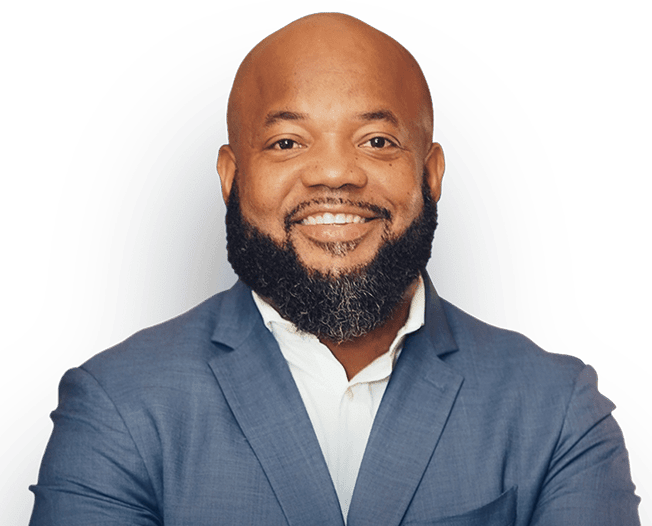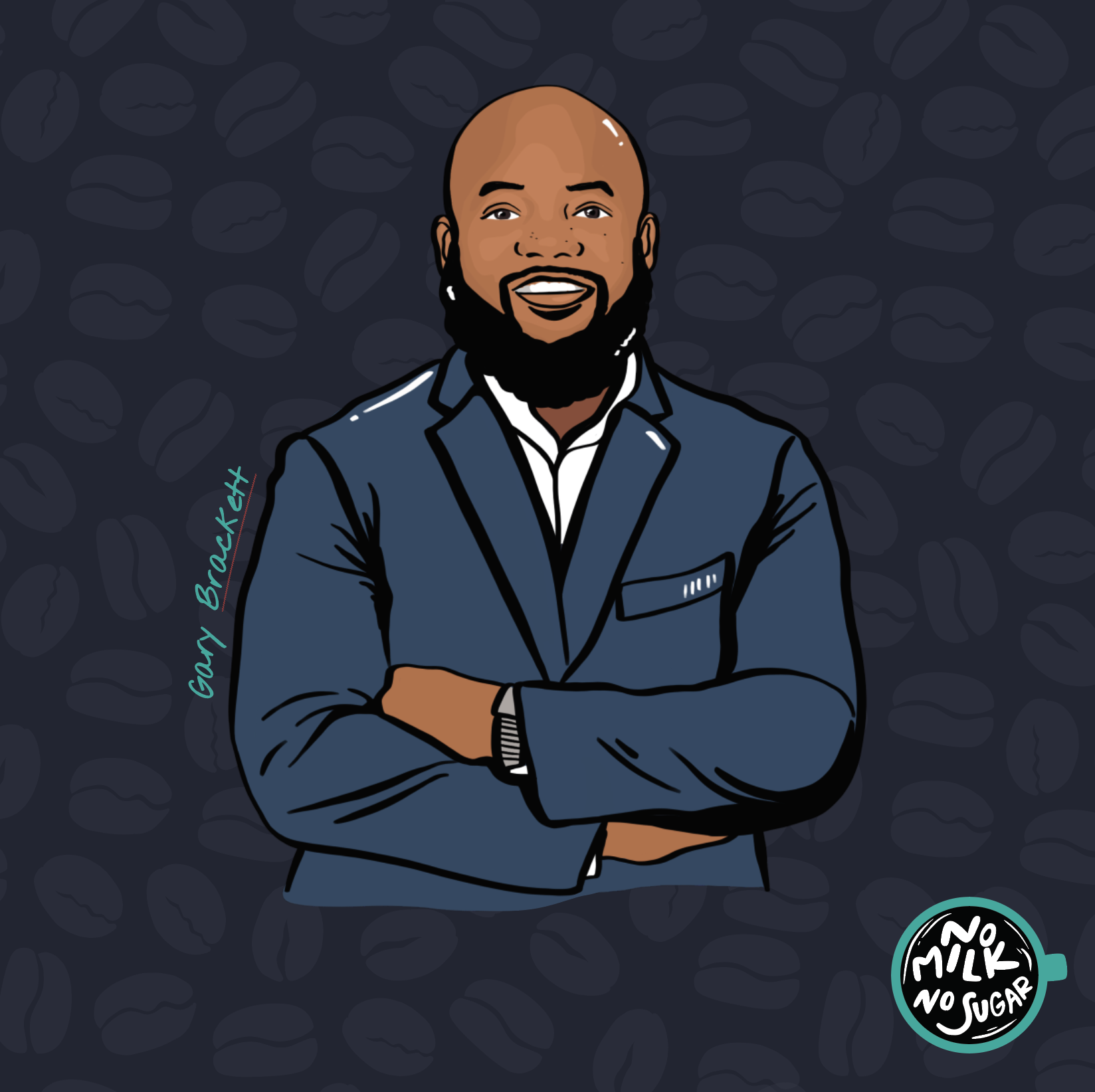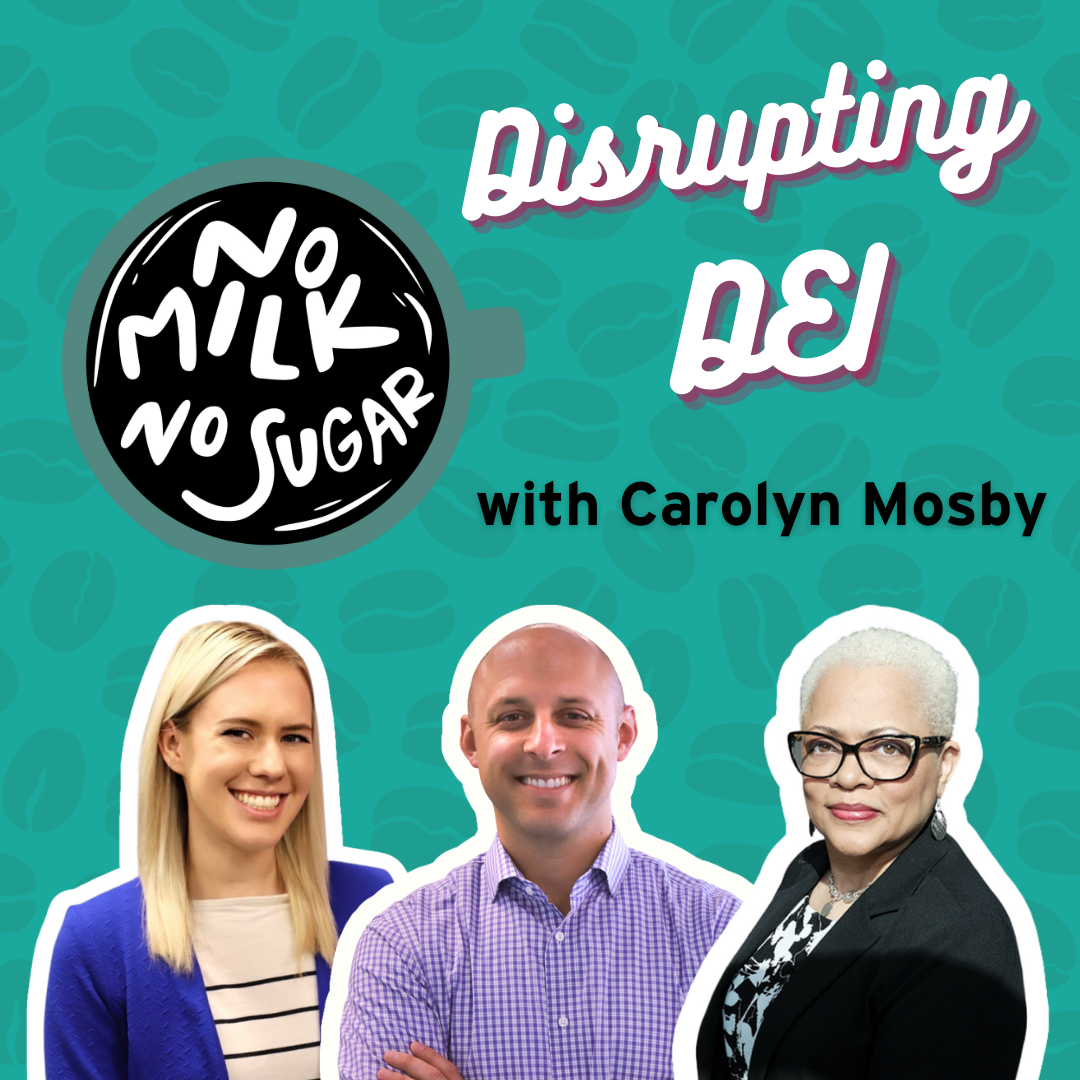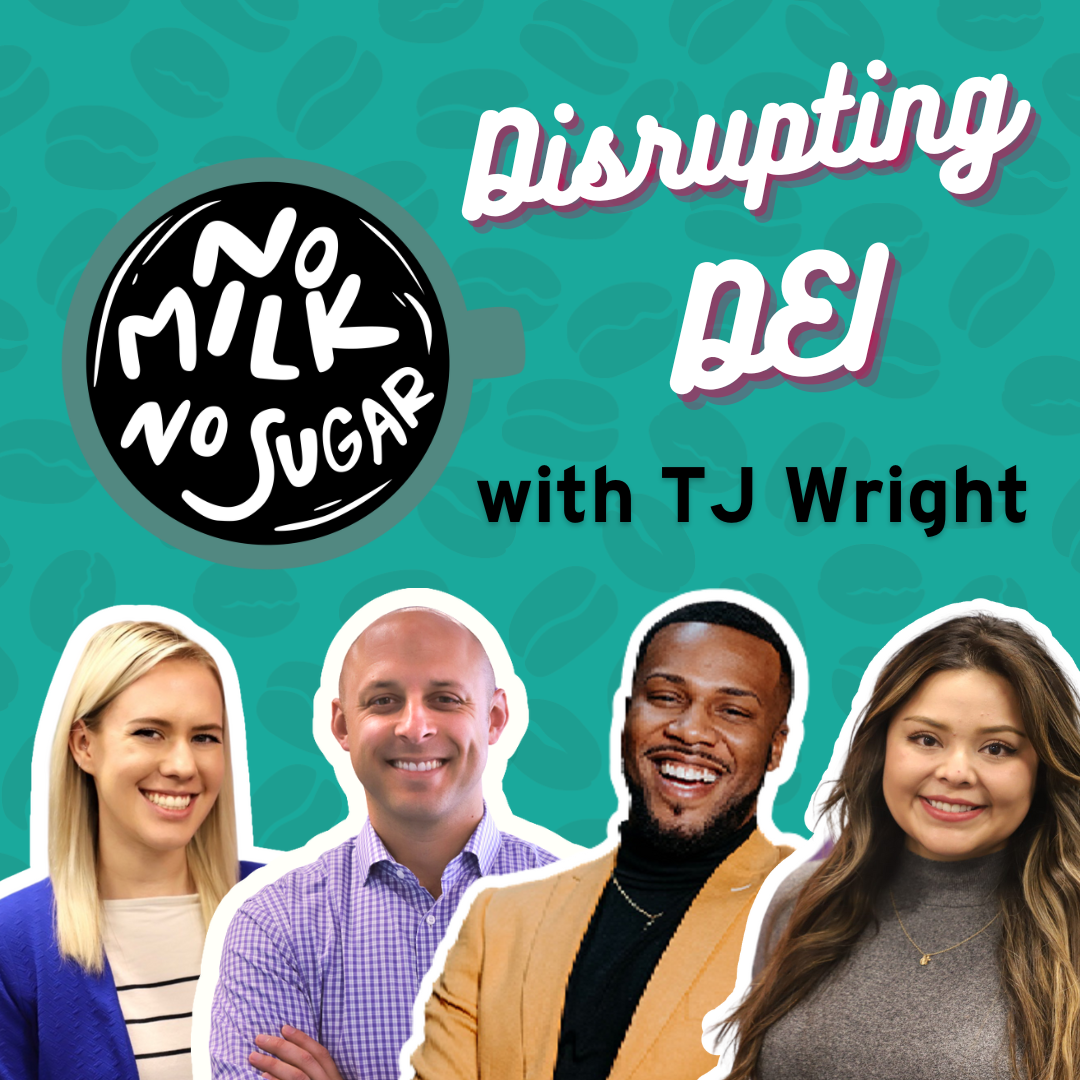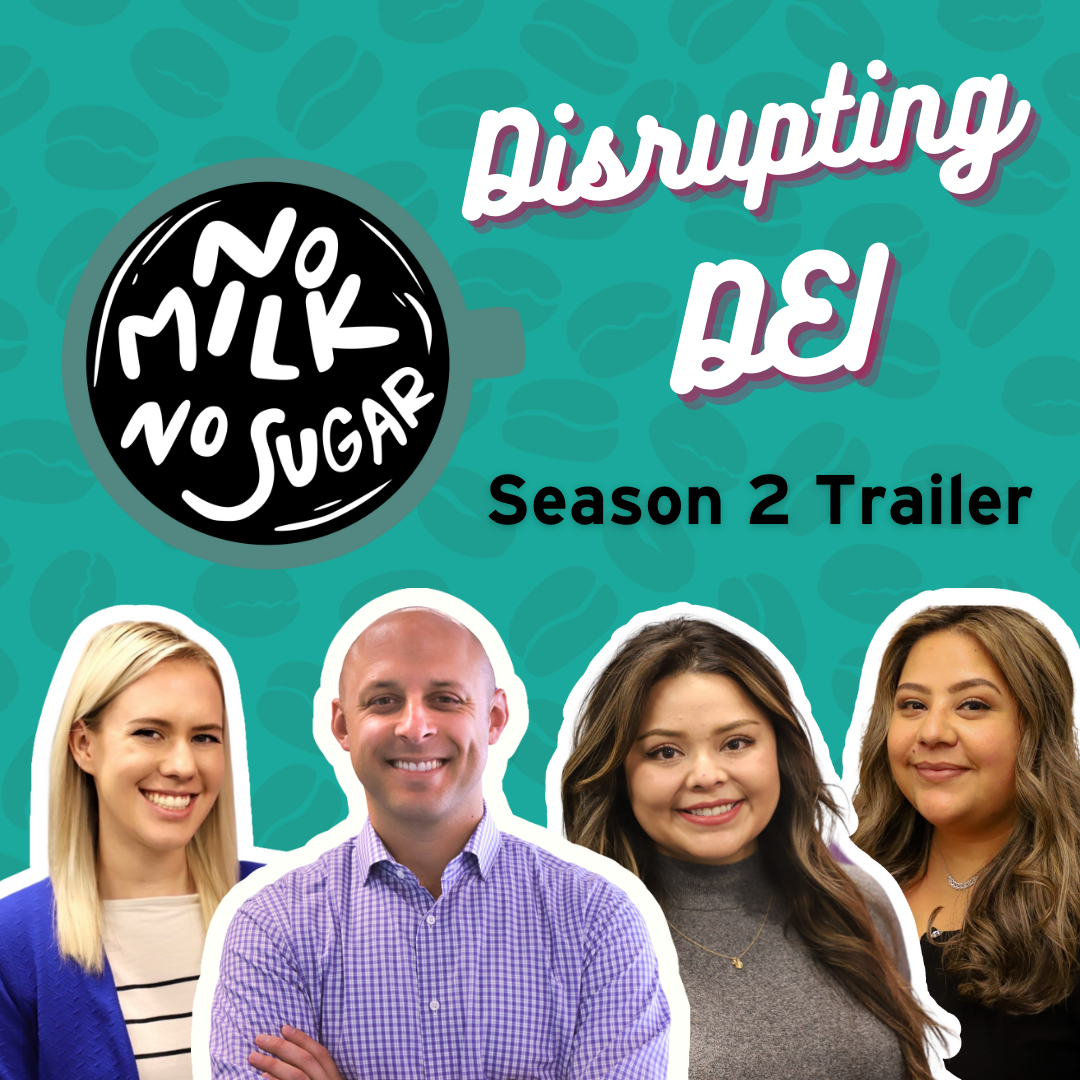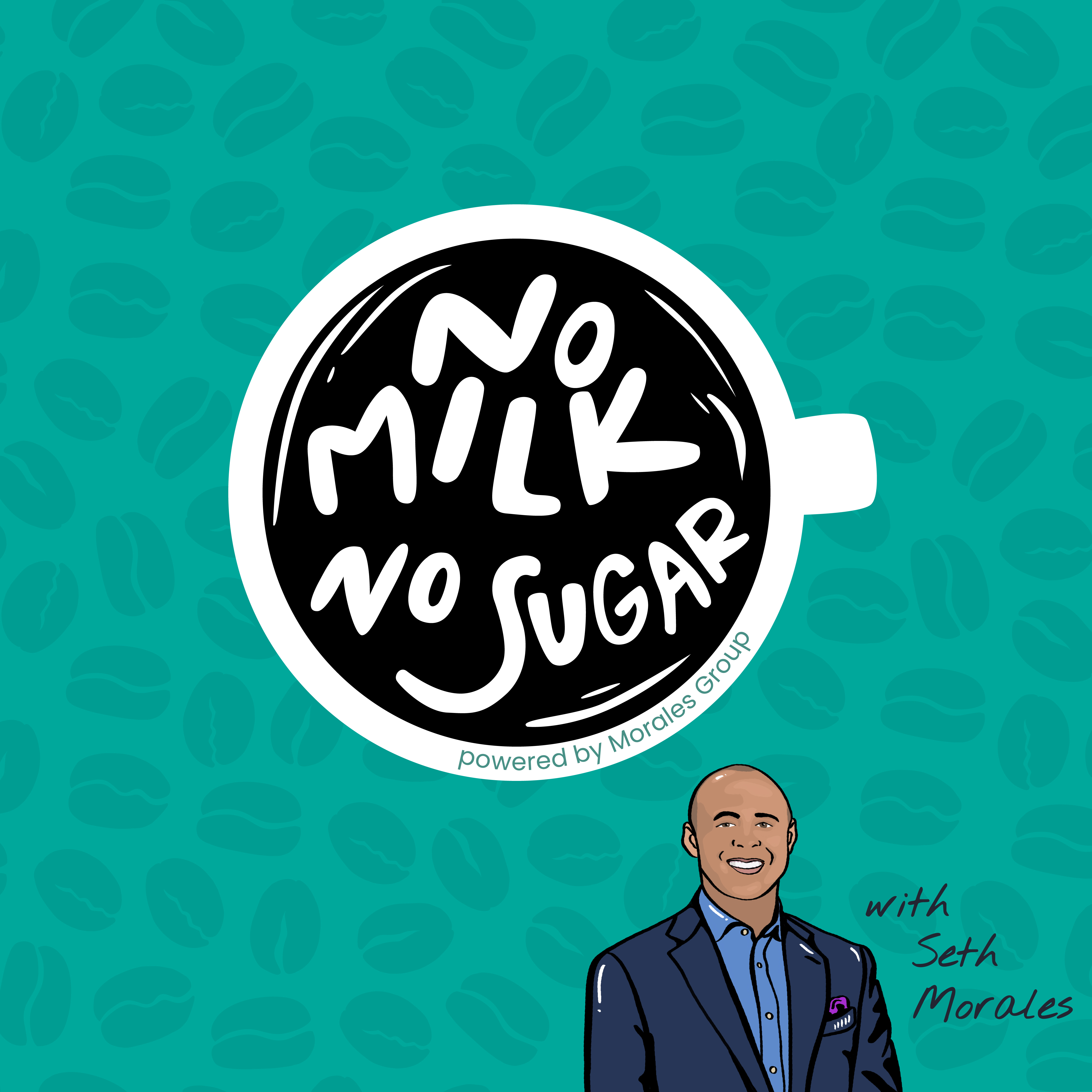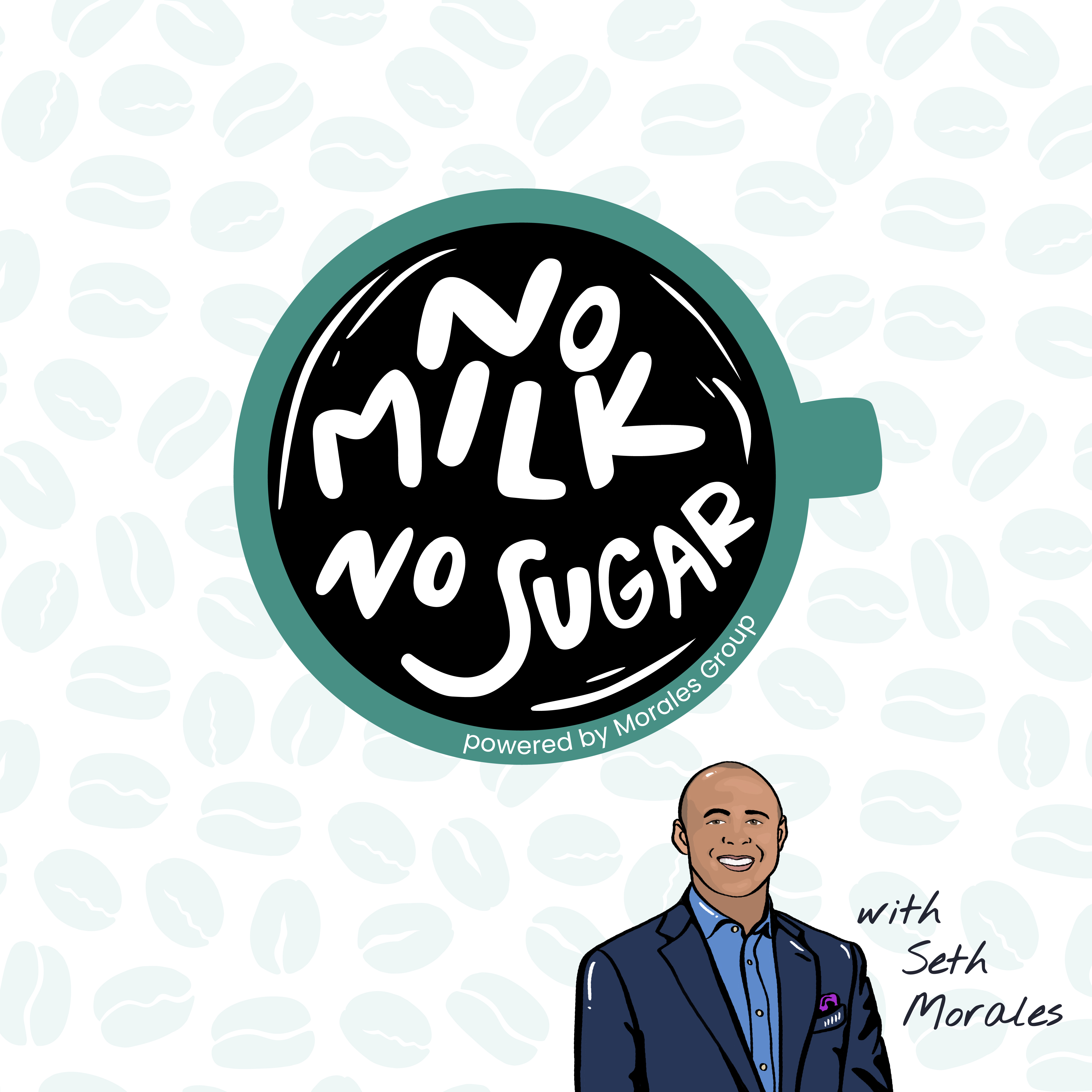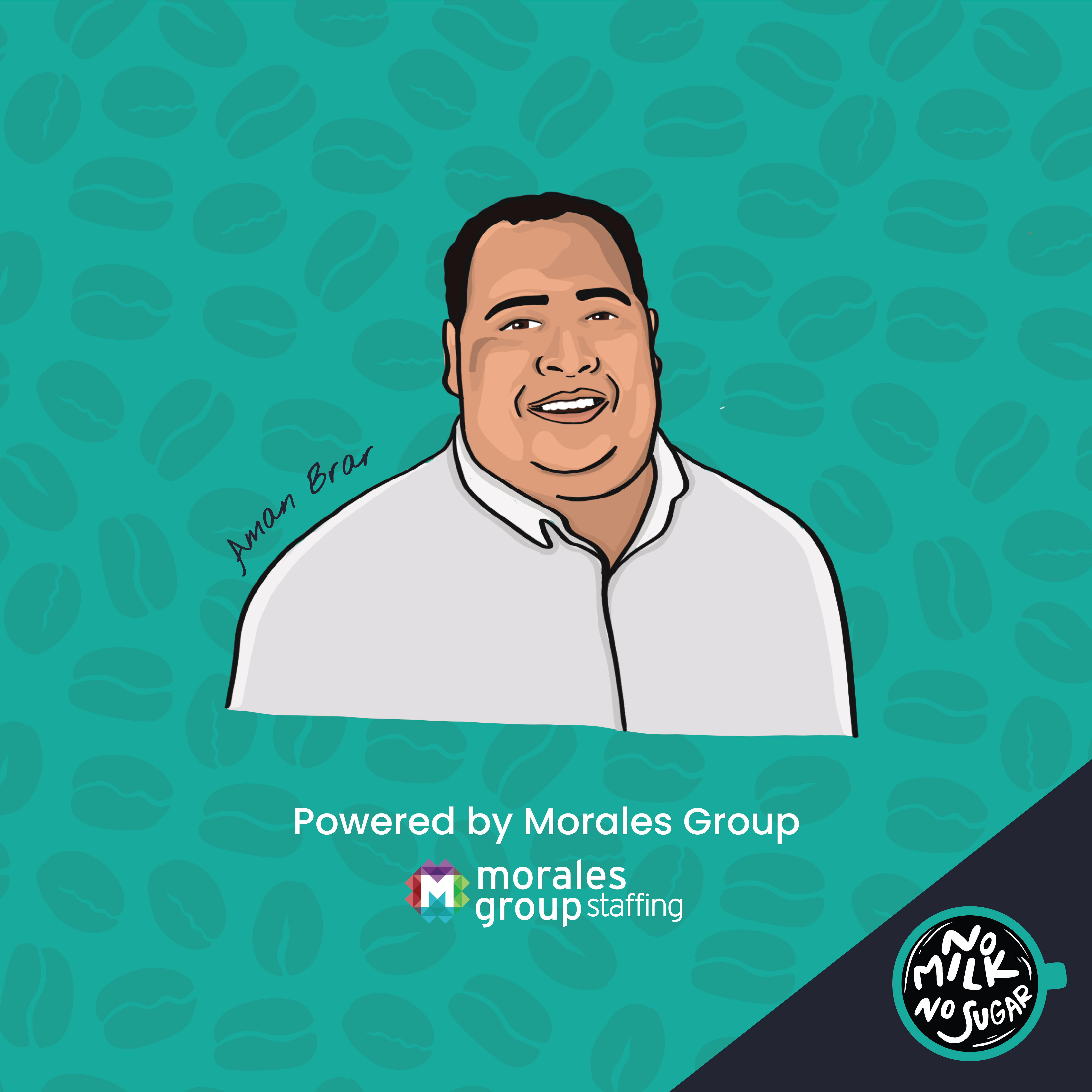How Finding Your Happiness Drives Your Success (Instead of the Other Way Around), with NFL's Gary Brackett
- 0.5
- 1
- 1.25
- 1.5
- 1.75
- 2
Barista: I've got a coffee for Seth, no milk, no sugar?
Seth Morales: Right here. Thank you. Hi, I'm Seth Morales and you're listening to the inaugural episode of No Milk No Sugar, the podcast about business beneath the sweetener. We talked to local movers and shakers about what can be the harsh reality of doing business. This isn't the highlight reel, we cover what no one likes to advertise, but everyone wants to hear. We get real. Today we talk to Gary Brackett. We're thrilled to have Gary as our first podcast guest. For those of you don't know Gary, Gary's a walk on at Rutgers, had a ton of success there and went on to become an NFL Superbowl champion and team captain for the Indianapolis Colts. Gary's own multiple brands as a successful entrepreneur. And he's got a proven track record of translating his championship level success across multiple playing fields. But Gary is not bulletproof, and the pandemic's real, and it's affected all of us. So today I thought we'd hear a little bit more about this insider scoop from Gary on how he's built this new 2. 0 version of himself, how he's starting off at base camp again, and his method for working through any challenge that's thrown his way.
Gary Brackett: Yeah, thanks for having me, man. Yeah.
Seth Morales: Amazing. I think it was 10 years, correct me if I'm wrong, Gary.
Gary Brackett: Nine years. A funny story, I said, when I started my NFL career, I want to play 10 years or 10 surgeries and I played nine years and I had eight surgeries. So too close on a surgery upfront, but yeah, nine years at NFL man.
Seth Morales: That's incredible, man. Yeah, my bad on the 10 versus nine. Anytime you get past, what's the NFL average, is it three years? Two and a half?
Gary Brackett: Yeah. But we're going to have three years, four games, something like that.
Seth Morales: Yeah. Well impressive to just look back at what you did. I was here in the city and just watching you play and being a big fan. I love the underdog and that's part of what we wanted to talk about today is just when it comes to life, whether it's family or business and just how we operate, just having that mindset and mentality. And I think just your overachievement has really spoken volumes to how to go about and do that the right way, both personally and professionally. Hey, before we get started, how was the trip up to Michigan with the family? Do you have a good time?
Gary Brackett: Great time, man. I've been obviously found you on IG. I felt like you almost hit every beach in Michigan. I'm just inaudible.
Seth Morales: We did.
Gary Brackett: But yeah. we went to St. Joseph's Silver Beach, man. And it's as advertised. I've seen the billboards for years about Michigan and how great it is. But man, I never been until this year. So it's definitely was a great time with the family. Good time to unwind a little bit.
Seth Morales: Yeah, that's a good spot, man. We were there earlier this summer as well. We hit up Silver Beach pizza and they got some of the best. They've got this pizza spot right on the beach. And they make a ton of money and they just crush it right there. So glad you're able to carve out some time with the family. Hey, listen, one thing that I thought was interesting, I was looking at your LinkedIn feed the other day. And you mentioned something about training camp and how you flew into Indianapolis. You were undrafted out of Rutgers. It was you and Kato June, and you guys kind of got together and formed a bond, but you also just had to prove yourself as a four strength linebacker. And tell me a little bit about that just as you came to Indy, what was the mindset? What were you thinking as you kind of... You had a little bit of a chip on your shoulder, you weren't drafted, but you're ready to come here to the city and improve yourself. What were some of those thoughts going through your head as you were coming to Indianapolis?
Gary Brackett: Yeah. Great question. First. Right? Just being transparent, right? This is about it's no sweetener. So first thing you got to do is fill out your contract, fill out the paperwork. So you're in the big board room, the lunch room at the coach facility and we're filling out the team name, where are you from, social security, all that fun stuff. So one of the guys walking me through it and I'm like, I'm a Jersey guy, right. Didn't travel a lot out the state. First time the airplane was my first game of college football. So a little green. So I look up at the guy and I was like," How do you spell Indianapolis?" And he was like," Oh brother, Ooh." I was like," How many eyes is in Indianapolis, man." So, that was kind of like the intro. This guy was like," This guy is not going to make it." But yeah, it started as four string. Funny thing about fourth string in NFL, it doesn't exist. There's typically only three strings. Right? I wasn't getting a lot of playing time. And I used it as opportunity where fourth string Mike, there was two Sams and one Will, or the Sam linebacker is typically your bigger, longer rangy guy. He's playing man to man versus the tight end, he sat in the edge at the time Marcus Washington was hurt. So we're going through drills. And our Linebacker coach was like," Hey, give me a second. We don't have enough guys. Let my guys catch their breath." And I was like," Hey coach, I can play Sam." He was like," What? You can play Sam? You're a Mike." I'm like," I ain't play in two days." He was like,"Oh, I just would get on the field." So coach Dungy was like," Put them out there." So I go out there and line up against Sam man and I'm just showing my athleticism, running into the football, getting locked up. And it was just one of those things where it's just like, man in life, you just need the opportunity. And I had an opportunity and I took the most of it, man. And anytime I was on the field, I wanted to give my best. I want to watch when I wasn't on the field, take mental reps. When I was out there, I didn't want to make any mistakes, man. I did a good job, definitely shined on special teams and had an opportunity to play that year. A special team made a bunch of tackles and then two years later it became the starter and I started for the rest of my career.
Seth Morales: I love it, man. I love that you were willing to adapt and switch. I mean, it's like going from the outside to playing inside slot, it's very different as a receiver. And just thinking about trying to figure out how you adapt that way and just stepping up and saying," Hey, I want an opportunity." I remember the first time you and I connected. I remember you mentioning that you had maybe roomed with one of my teammates Montreal Lov from Purdue. And I just remember Montreal was an undersized guy, had a lot of talent. He didn't make it unfortunately with the Colts, but obviously you went on to do that. So it was funny just knowing that you had that time with Montreal in training camp. Well, I mean a lot's happened between now and then, you've obviously built a beautiful family and you've built a restaurant empire and you've also just, I think, created such a wonderful brand from speaking all over the country or here locally to just all the stuff that you're doing social media wise. You've got just, I think a great way to just kind of position your brand and you've done some great stuff. Talk to me right now. Just like, where are you at post Bracket Restaurant Group, and maybe some of the challenges there. And then just where you're at right now with maybe this concept of the infopreneur and you're kind of pivoting. Talk to me about just where you're at, where you're going and what's in your head right now.
Gary Brackett: Man. That's a great question. I'm sure a lot of people COVID has been very disruptive. It's something that we definitely were not planning for 2020. Heading into the year, we had 10 restaurants across Indiana and one in Ohio. We had sold seven franchisees. And for the last six years, that's what I dedicated my life to where I built in this system of restaurants, putting the processes in place to streamline it, to sell it and to scale it. And man, we were close to getting it done, right. We have four restaurants open up this year, a pipeline of 10 more franchisees coming in. But when COVID hit, it was something that was so disruptive and missing out on March madness, which is our biggest month of the year by far. And then on top of that, having to shut down and go to delivery only. And in the restaurant, the delivery fees, DoorDash, they take 30% of your revenue. So that's a loss leader for restaurants. You don't make a lot of money off that. So we've tried that for about a week and we're still bleeding money. So then I made the decision to kind of shut down and kind of ride it out, man. And just looking at the way things were going just taking some internal assessments about what we overcame and how we were positioned. I just didn't really see a lot of great options in terms of a go- forward plan. Even now I look at restaurants, man, and if you're on the spot, guys listening, definitely support your local restaurants because it's hard to make money in the restaurant industry at a hundred percent accuracy at 25 to 50%, these people are losing money. They're open so they can essentially pay the bills and make a net$ 0. So a lot of challenges in that space. And I just looked at what I built and how much I had invested. I mean, I'm an all- in type of guy, right? So I had it all kind of invested in that business. And I was just thinking to myself like, man, the worst thing in life is not failing. The worst thing in life is staying too long. And the one thing that you can't get back is your time. So what I started just running the numbers in. And then the other thing happened was, I was managing 400 people and in COVID I have a small office and it was about four or five people who were managing and talking to them. And it just gave me so much more time to invest in myself, personal development, reading books, taking the online courses. And I just started growing as an individual. And man, it just really lit me up. And I was like, man, you know what? I can fold this restaurant knowing that we did a lot of great things, learned a lot of valuable lessons, but to chase this thing for the next several years, knowing that I'm going to lose money, I'm better off giving it all back and taking some lumps and rebuilding. Because money, I think, is renewable, your time is not. So I just made the conscious decision like, yo, I have some other opportunities, some other skillsets that if I pursue and I could do properly, then I could be just as successful. But then this was key, and this was what I really learned. And I think this is going to be powerful for somebody listening, is that my whole life I've been chasing success. You know an underdog people, can't tell me what I can't do. So I'm trying to prove people wrong, chasing the ultimate. And while you're doing that, for me personally, I won't speak for everyone, but when I'm chasing success, I'm delaying my happiness. I'm telling myself like, hey, when I get to this level of success, right? If you have an X axis is happiness and Y is success, I'm thinking, yo, when I get all the way over to that Y axis, then automatically it's going to shoot me up the happiness scale, right? And then the more and more I'm looking at it, I'm looking at my activities and when I'm doing, I'm like, you don't have to wait to have happiness. Right now in your current situation, your current success level, you can decide to be happy. And it's a choice. It's a choice that you're going to decide to be happy. And when I started making that choice, just decided to be happy, man, my world really changed. And I wasn't as bothered by success, or lack thereof success, or having to fold the restaurants. I really just started pertaining to like, "Hey, what, what drives my happiness? What am I passionate about?" And one of the things I'm passionate about is speaking publicly, serving others, and just really teaching others what I wish I would have learned as a CEO starting out and because of that, you talked about it a little bit, started creating some programs, I'm writing some books and things like that, just to kind of encourage others, inspires others to avoid any pitfalls, and really build a business around what kind of life they want to create, and not building a business trying to chase success.
Seth Morales: Yeah, man, that's rich. I mean, if you're listening to that, I mean that was about five minutes ago, right there, man. That's encouraging to me here and you're saying, choosing to be happy and chasing what's most important in your life and this delayed gratification thing. You've done that before. You know what it feels like to be on the other side and just having that intentional mindfulness about," Hey, I'm going to choose to be happy. This is an opportunity for me to get my time back. Really kind of dig into what I like to do." That makes a lot of sense. And I think that transfers over to me running the business here at Morales group or somebody else, maybe they're solopreneur and they're doing their own thing, or maybe somebody is working for somebody and they're not super happy with what they're doing right now. Just kind of choosing to be happy and figuring out what that pathway looks like and not being afraid to make the move. So I love the pivot. I remember talking to you down at Louisville, down at Churchill downs when we had that YPO event. And you had this energy about this idea of this infopreneur and really kind of going all in. There was less brick and mortar or less sunk costs with just your capital versus with a restaurant you're putting a multimillion dollars in to start up a new restaurant, or get somebody to buy into being a franchisee and getting that operation up and running. So that makes a lot of sense. Thanks for sharing that, man. I think, could you build upon like talk to me a little bit more about this infopreneur and how you want to establish yourself as water? What does that look like? You said programs, writing books, positioning yourself on social. Give me some flavor of what this looks like going forward.
Gary Brackett: Yeah. And it's really a new concept, right? When you tell people infopreneur they're like," What the hell is that? What are you talking about? Like infographics." How I explain it is like, if you're an entrepreneur, you buy watermelons, you cut the watermelons up and you sell slices. Right? And self- employed like, good gig makes good money. Business owners will see that, right. They'll cut the watermelon up and they'll make a mojito, right. So they bought a watermelon this summer, it was at$5, right? What an infopreneur is, he teaches people how to either slice them up and make know money selling slices are making mojito. And he takes the best practices of both packed this up and communicates to others. So they won't have to make those same mistakes. When I look about what I learned throughout my life, one on becoming a champion and that's my signature course, Champions Academy, naturally teaching people personal development and how you can be a champion in every area of your life. I look at our lives and I look at, you know there's seven pillars. There's your personal development. There's your business, your fitness and your health, your finances, your spirituality, and your intimate relationships and your social relationship. And all these areas, we have opportunity to be our best, but most of us concede and say," Hey, I'm really good at this business thing. I'm really good at this family thing. But because of all those things, I don't have time for my fitness and my health." And eventually, if you don't take care of your fitness and you health, what's going to happen to your business? It's not going to be successful because you can't do this. What's going to happen in your family? While all those trips that you took to Michigan, you're not going to be able to do it, right, because now we're not going to be positioned to move around. So it's this mindset that, "Hey, I could be a champion in every area of my life and really walk people through that process." And what I did is I developed this system on how I get that done, it's called the CHAMP framework. And what the CHAMP framework is. Breaking down champion, it's champ. And then we start with C. C is understand your current situations. So a lot of times I'm talking to CEOs, I'm talking to business owners and I'm asking them," What is your current situation? And not what you want it to be, not what you hope it to be like, what is it currently?" And I tell people, not that you have a shirt on, you looking in the mirror, you look great. No. what is the stark ass naked, you're looking in the mirror, what do you look like? And that's a totally different look, right? As an athlete, as a guy who's working out, who you know want to stay fit, you're like," Ooh, like that guy?" Like," Yeah, he needs to lose some weight. Right." But that's great because now you know, right? Now we have a starting point. And so now, we move on to H. And H is like, all right, let's hone in on our desired destination. Where do we want to go? And really getting clear on bond. So many people, we put this ladder on his mountain top, and then we climb to the top and realize," Yo, this was the view I was looking for." So really hone in on your desired destinations and getting clear on what it is you want to become, like, what are your company goals in 10 years? where are they going to be in three years? And really identifying what that is. So then you can really have that clear picture. Brendan Bouchard always talks about, the best time to have a map is before you entered into the woods. And I think that's just so right. So the next, all right, cool. How do you get there? How do you close the gap? How do you close the gap is there A part, is the apply the 80, 20 principle. And that's looking at your life, looking at your business, looking at fitness and health, and there's probably 20% of your activities that inaudible those results. So really getting a good understanding what does that 20% look like? And so many people are like," I'm busy, I'm busy, I'm busy." I'm like," Oh, you're busy. You're not productive." And there's a difference. So what I do is I take people through like a focus funnel. And the focus funnel is just like an EAD method. So we look at everything you're doing on activities and we put them through a method and then you can either eliminate them, right? Some things you shouldn't be doing, period. They don't reap you any benefits, right. They are a habit and not serving you. So we could just eliminate them. If we can't eliminate them, then we look to automate them. What things can we automate? We can," Oh man, I got to go grocery shopping." You can actually automate your shopping. You actually press a couple buttons and they can drop groceries off at your door. All right. Your dry cleaning, you can actually leave it outside and hire someone to come get it. Right. So there's a lot of things that we can automate and remove that as a task. The third thing, and a lot of business owners, entrepreneurs, you have people working for you. You can delegate it. Now I know to delegate it, you have to put your processes and systems in place and make sure it's done properly. Right. And I work with people and doing that as well. But after you go through this model, it really gets down to that 20% of the activity that you should be doing on a daily basis and what your unique skills and ability what your genius is. And I don't know about you, but anytime I operate my genius, I feel more alive or for more passionate and I'm actually more effective. So then we go from there. Now we understand what that is. So then M, we take massive action, right? And it's that massive consist of action is the keys, is that discipline, day in, day out. And the challenge there is so many people get discouraged where," Hey, 30 days, I'm going to do this for 30 day workout. And if it doesn't work, then I'm going to go back to eating like crap." And the fact of the matter is, 30 days is not enough. It takes 66 days to build a habit. So you got to stick with it longer. And that's where that massive action takes place. And then ultimately you get to P. And a P is the pursuit of this championship transformation. And I just look at it as a journey, like the rest of my life, I'm going to be chasing greatness, the rest of my life, I'm going to be chasing the best me. And if I do all those things leading up to that, I know exactly where I'm going and how I'm going to get there. And then now it's just by me being a disciplined ex- student.
Seth Morales: You heard it here first, champ framework. I love that man. The 80, 20 massive action pursuit, the journey, all that man, that sounds really good. And it feels like with COVID, it was kind of a blessing in disguise, although it was difficult, it's rocked. Our businesses wrecked a lot of different people's businesses. It gave you that opportunity to be mindful and choose to focus on some of the stuff that I think you kind of geek out about, man. I mean, it's what is like been your framework for having success in life, whether it's your family or business or on the field. So it's neat to see this kind of come to fruition. Thanks for sharing that man. One other thing I kind of getting back to this infopreneur, so you built the Bracket Restaurant Group, and now you're pivoting and you're into this new opportunity with all this. I think it's fantastic because everyone and their mother is looking for an opportunity right now to redefine themselves. There's a lot of mental health going on. A lot of people are just not engaged with work and they're looking, they're coming up for air. They need content like this. Do you feel like you're back at training camp and you get to kind of start again? Or do you feel like," Hey man, I've always been on the field. I get to be a little bit more choosy with the time that I spend." What's it feel like just kind of his new start? How do you feel now?
Gary Brackett: Man, again, right. It's so many valuable lessons that I've learned and my viewpoint on life, or whereas before the Gary Vees of the world, and there's a lot of people that kind of preach it like, "outwork and hustle, hustle, hustle, grind, grind, grind." That mentality leads to burnout and it leads to you being unhealthy. And so, my model has changed, it would be instead of thinking like, I'm going to outwork you, I'm going to out-grind you, my model is now, I'm going to out-think you and I'm going to out-serve you. So really when I'm putting together programs where I'm putting together things, I'm looking at my ideal avatar and entrepreneurs, people that are in business, sports backgrounds to kind of get the kind of mentality that it takes to overcome some obstacles. And then you look at how can you serve them? What problems are they facing right now that you could give them some real life transformation from? Because a few years ago people say," You're a motivational speaker?" Like," Hey man, if you need motivation from somebody, I don't want to coach you." Right. Because I think motivation has to come from within. I want to inspire you. And I give you an actionable steps that will transform your life if you execute on them. And I think that's a totally different play when I go in to speak to organizations. Yeah. It's going to come off maybe as motivation, right? Because I'm going to be excited and be passionate about what I'm talking about. But at the end of the day, I want people to take action. I want people to realize that motivation comes from within. And when you start checking the list off of your own activity, do you want to get done? That's how you keep motivated. And trying to tell people that the person that they're waiting for is looking at me in the mirror every morning, and trying to get them to be self motivated. And by doing that, I think that just really gives people, like you said, a lot of people are down. And a lot of people they're... I look at people in life they're thermostats and not thermometers, where a thermostat you come in and just like," Yo, it's a 50 in here. All right, my bias is going to go to 50." Thermometer would be like,"No, I'm an 80." So everyone in this room is going to come up to me. I'm an 80. And it just as a leader, you have to be able to set the temperature in your organization, and you just can't check the pulse like," How's everyone doing? Oh, you're down, you're down. Oh, okay. I guess we're going to be down this week." No, you have to go on and inspire and lead, and set the tone. And do things that's maybe a little bit different because like the whole Maslow's hierarchy of needs. Right now people are thinking like," Oh, well they're still getting paid. They still got a job. What are they worried about?" It's the safety, right? That's one of the biggest needs, right? Comfort. They're worried about a lot of things. So it's just like really holistically, double down on your employees and really their mental health. And then once you get that figured out, I think they're start executing. You need them to finish out the year strong.
Seth Morales: I love what we talk about. There's a lot of leaders, a lot of CEOs, you and I have been around throughout YPO, there's burnout, man. There's leaders that, especially right now, just they're putting their shoulder onto it. They're trying to out hustle it. Like you said, kind of the Gary Vee concept, your change of your chain, you're kind of flipping it on its head and saying," Hey, now I'm going to out- think you. I'm going to out- serve you. I'm going to come up with a way that it's..." Because you've done that. I mean, you put your shoulder down literally for nine, 10 seasons and you had all that success, but at the same time, it's like there's also different ways to go about it, man. So I love that you just have this perspective right now. I'm grateful, man, that you're doing this one thing. I was talking to Tori, our producer on the show here. And I was saying," I wanted to write a post about Gary Brackett on that." And I wanted to tell people, if I were you, I wouldn't be watching every single step that this guy's making, because he's made a pivot and he's gone through some adversity. He's getting ready to like... It's like, you're kind of caged out, you're doing your thing. And then all of a sudden... I think just the lights will come on for a lot of people with the content that you're sharing. I'm proud of where you're at right now and where your mind is heading. And hopefully I can soak up some more notes, man. I did, I wrote Set the Tone as a Leader, and I think being kind of that temperature for others to kind of see too that, that makes a lot of sense. Hey, we've got a few more minutes left. I've got maybe one last question to throw your way. I just think about your life and just some of the adversity you went through. You can talk about your story's pretty famous. You lost a lot of close, significant, loved ones early on in your NFL career. You've been through a lot as a leader. Compare where you're at today versus what you've been through, this is just like," Hey, be prepared. Adversity is just a part of life. You just need to be ready to go." Can you speak a little bit more about just how you feel about adversity and how you've been able to just kind of navigate through it just over the past few years or early on when you were playing in league.
Gary Brackett: Yeah, man, it's amazing. My belief is that, the true measure of a man and where he stands in the face of adversity. Right? I think that's a Martin Luther King quote. I think so many of us go through adversity, and so many of us don't make it out. They're really sad part, and it's why I wrote my next book. It's called Championship Grit. It really just talks about the grit you have to have to remain a champion. And I'm going to tell you this story because it really changed my life. Right. Because I know you're online posting and sometimes you post, right? You thought it was genius. It probably took you eight hours to think of the caption. You edited a bunch of times and you post it, you get like five likes. And you're like," What the hell? I didn't spend all this time figuring this out!" And then sometimes right. You'll think like," All right, man, I'm going to stop giving this much time." and one time I'm at the coach camp, it was an alumni camp, and I player comes up to me and he asked me like," yo man, can I talk to you for a second?" And I'm like,"Aw, man, like what?" You know what I'm saying? How much money you want. Right. But he's like," Hey man." He was like," You saved my life." And I was like," Did he bet the parlay that he mortgage..." Like," What are you talking about?" And he started getting teary- eyed and he's like," Yo, it was like about a couple of months ago. I was about to shoot myself. I was about to take my life and I had the gun loaded and I was writing a note. And before I did, I checked Instagram and you had a quote that said,'You don't seek help because you're weak, you seek help because you want to remain strong.'" And he's like," I put the gun down and then I call my counselor and I got help. And because you, man, I'm still here." And I look back on that post. Right? Didn't do well. And if I base what I do on likes and engagement, right, I won't be able to positively affect people's lives. So I look at the opportunity that we have as thought leaders, as people that people are checking out, and that's the message, man, it's just like, there's nothing that you can't survive. And the fact that you're listening to this right now, you survived a hundred percent of your worst days. And when you look at it from that perspective, man, I'm just so extremely grateful that every morning I wake up, man, I have an opportunity to be great. I have an opportunity to change. And people think of it like," Oh man, change is just a hard thing." No, it just require daily discipline. And I think that's the book's about just really understanding stop running from your demons, stop running from these things in life because they're not going to get any smaller, and they're damn sure not going to go away. It's time for you to face these challenges, man up to them, get help if you need it. But to take him down once and for all, and it'll change your life forever.
Seth Morales: Thanks for sharing that story. I mean, that's impactful I think. You don't realize the impact that you make sometimes, especially like you said, you feel like you did that post and it didn't have enough traction, but you've helped that person through that adversity. And that's great. I've been taking notes this whole time and I feel like I'm sitting in one of your classes again, man, but this whole adversity that we're going through, you always talk about, expect over comment, expect to walk through it. Don't be afraid. You just got to stick to some of the habits and focus on your mindset. I love it, man. I appreciate you sharing that today. I really wanted to just kind of dig in to see where you're at and it's going to be fun to see how you continue to build your platform here in this market, the city, the US, man. It's big things ahead. So keep up all the great work man. One thing I just wanted to kind of close this out. Is there a good way to get ahold of you? Would you recommend Instagram, LinkedIn? How could somebody from the podcast connect with you?
Gary Brackett: LinkedIn is a great way, IG or Garybrackett. com is my website, and then you can put it in a whole request and someone from my team would get back to you.
Seth Morales: Awesome. Thank you, Gary. Any final comments, anything you want to leave the audience with or are you good to go?
Gary Brackett: Yeah, I think the one thing that just really piggybacking when I was talking about earlier, but that whole leadership thing. I live by this motto, the speed of the leader determines the rate of the pack. The fact of the matter is that we're all leaders, you know? First and foremost, for ourselves, for our families, and a lot of us inside of our organizations. We can't wait and sit on our heels for someone else to inspire us, to take charge. And so many of us have the ability to get it done, but we just have to overcome. The fact is that it is our responsibility. And once you start doing that, man, it's amazing how many people have been waiting for you to take charge. And you're playing small, thinking that no one is going to listen to you, but they're sitting back hoping, praying that you be the person that steps up and leads them. So don't be afraid. Don't be bashful, man. If you want to be a leader, man, it's not for the faint of heart, but I'm telling you, it's so rewarding when you're able to lead people to where they want to get to.
Seth Morales: Thank you Gary for sharing. I appreciate the wisdom you dropped on No Milk No Sugar. Have a great week, man.
Gary Brackett: All right, man. Thanks for having me on.
Seth Morales: Man. It was great talking to Gary had some wonderful insights, a few that really stick out to me. Gary talked about these moments in his life where he's had setbacks. And I think what he said was the worst thing in life isn't failing, it's being stuck where you are. And then the other thing that I think was very notable that Gary shared was that, money is renewable, time is not. When you think about your life and where you're at and just how important and precious time is. I think if you follow Gary on Instagram, he's got wonderful motivation and I'd be interested to see how he moves forward in this kind of 2. 0 version of where he's going. He's got tons of potential and lots of perseverance. And that's what I love about Gary. He's a champion he'll keep fighting and the best is yet to come. So thank you again, Gary, for making time to hang out and share. So moving forward, here's how you can reach out. Listen at podcast.moralesgroup.net, or you can reach out to me on LinkedIn or you can hit up the nomilknosugarpod@gmail.com for suggestions or any other questions you might have. I'm Seth Morales. And this has been our first episode of No Milk No Sugar. Thanks for listening.
DESCRIPTION
In the inaugural episode of No Milk No Sugar, Seth talks to Gary Brackett — NFL champion, former CEO, transformational speaker, and current infopreneur. From being a walk-on student athlete to his legendary NFL Super Bowl track record and team captaincy, to owning multiple brands as a successful entrepreneur, Gary has a proven track record for translating championship-level success across multiple playing fields. But the pandemic touches all, and Gary wasn't immune.
In this episode, Gary and Seth get real about the folding of the Stacked Pickle restaurant chain during the pandemic, how finding your happiness drives your success (instead of the other way around), and why out-serving your competition outperforms who grinds the hardest.
Today's Host
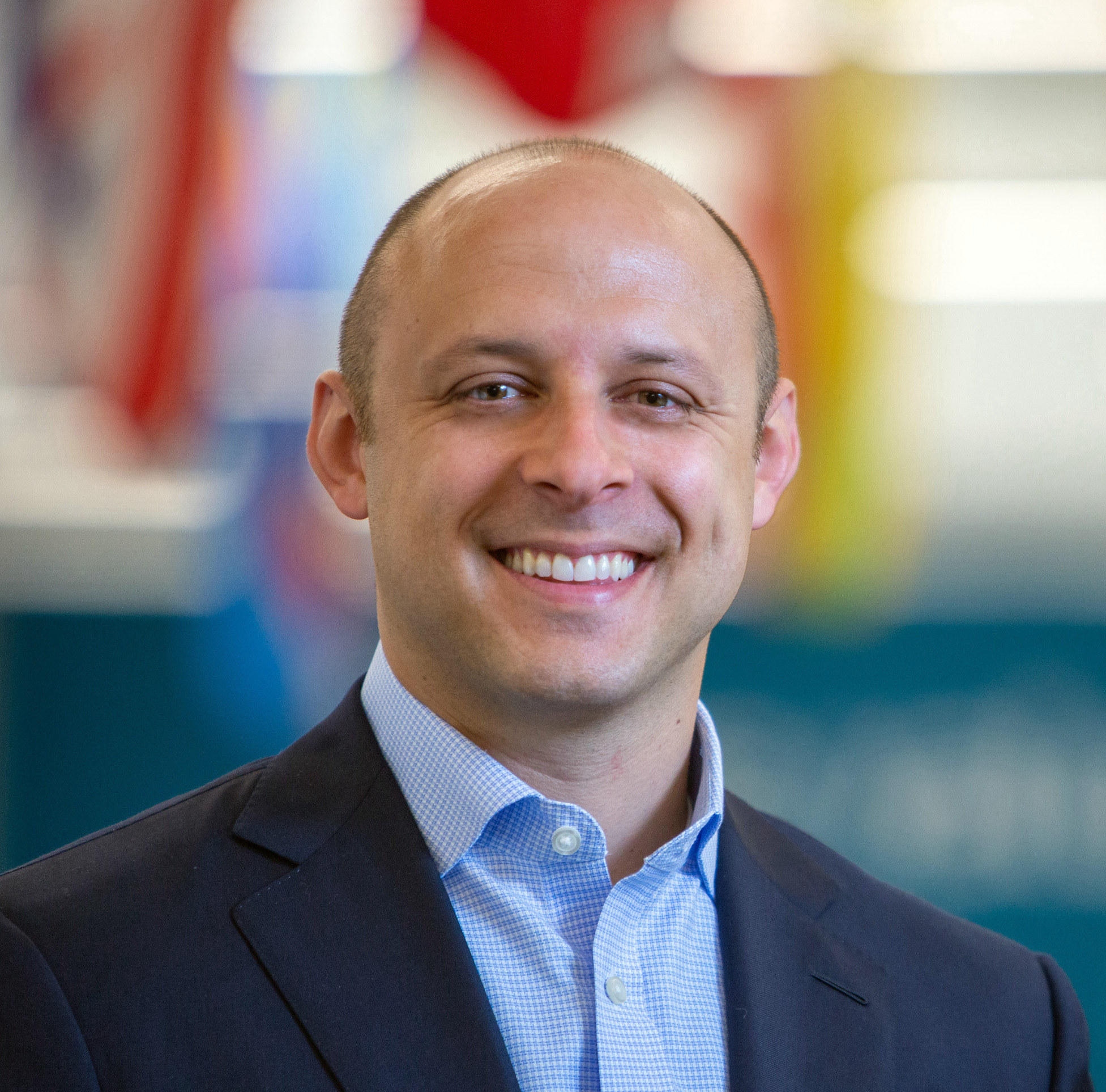
Seth Morales
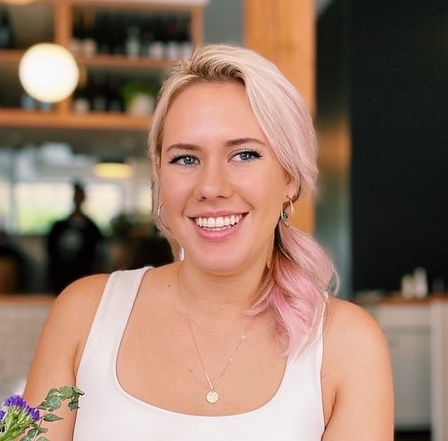
Tori Updike
Today's Guests
